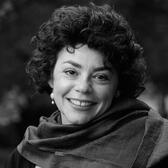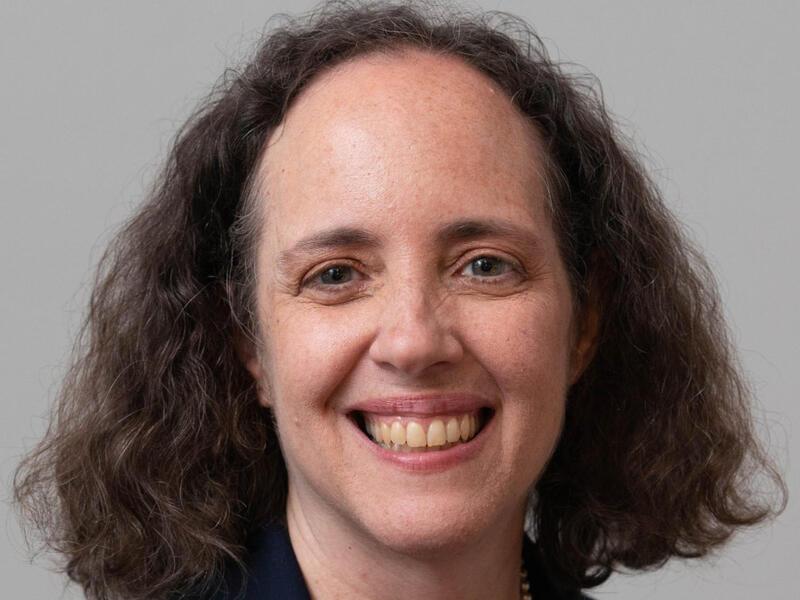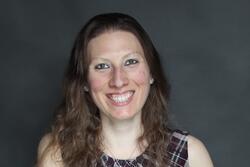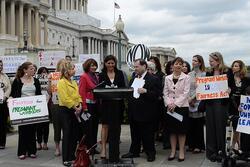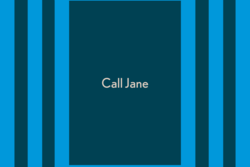7 Questions for Cindy Rowe, CEO of JALSA
Recently, Deborah Leipziger sat down with Cindy Rowe, the CEO of the Jewish Alliance for Law and Social Action (JALSA), to discuss the organization and its work in our current political moment.
Deborah Leipziger: During these times when justice and democracy are under attack, JALSA gives us a way to focus our efforts to promote justice. Which areas of social justice does JALSA focus on?
Cindy Rowe: JALSA is dedicated to engaging the community in promoting civil rights, protecting civil liberties, and pursuing social, economic, environmental, and racial justice. We do this through a lens of Jewish values, and use our "toolbox" of community organizing, advocacy, education, legal strategies, and coalition building.
DL: What inspires you? What gives you courage and strength?
CR: I am an eternal optimist. I believe that a better world is possible, but only if we work for it. I'm energized by all of the people who are motivated to come out, especially these days, in strong support of those who need our voices to make sure that we have a secure safety net—food, health care, housing, etc. —for all who need it in our country. I am energized by people who believe that due process, civil liberties, and constitutional rights are worth fighting for and who are willing to put time and effort into this. We can't take democracy for granted, and people have to rise up to protect it.
DL: Who are some of the allies that JALSA works with?
CR: JALSA's work is based on relationships. Everything we do is in coalition. We believe that these coalitions need to include the voices of impacted people in order to pursue solutions that will work for people's lives. We work with many organizations in the secular community— civil rights (very closely with the ACLU of Massachusetts), housing, health care, immigration and resettlement agencies, economic justice, legal services, anti-poverty, labor unions, and many more.
In the Jewish community, we also work with many groups that want to take stands on our issue areas, including abortion rights, book banning, immigration, voting rights, and many other areas. For example, when the Dobbs decision came down from the U.S. Supreme Court, our first call was to the Jewish Community Relations Council of Greater Boston (JCRC), which immediately helped us pull together all the organizations in their membership dealing with this issue. We formed a task force to tackle it together.
We have formed an innovative and collaborative partnership with Jewish Family Service of Metrowest so that we can explore what it means to have a policy agency like JALSA work with a direct service agency, and how this can accelerate impact for both of our organizations. We started by working on immigration issues together and now have expanded to housing and workforce development.
As issues on the federal level become more challenging, we also find ourselves working with national movement-building organizations, providing a faith-based/Jewish voice at the table, representing our values in those spaces.
DL: Tell us about ways in which JALSA works with temples.
CR: JALSA has many temple partners across the state. We most often work with social action committees, presenting curricula on specific social justice issues, including how these issues interact with Jewish values and texts. We then work with temples on how they can "pray with their legs," involving them in contacting state legislators and the Governor through meetings, emails, texts, postcards, and phone calls regarding policy changes. We have involved temple members in out-of-state ballot campaigns, primarily on abortion rights ballot questions around the country.
DL: Are there other organizations like JALSA in other parts of the country or the world?
CR: JALSA's origins are tied to the American Jewish Congress (AJC), New England Region. When the National American Jewish Congress ended its relationship with the regional chapter, our members decided that they wanted to continue their work together, fighting for social justice. In 2001, we created JALSA to continue this legacy. There were a few other organizations that also started growing out of the AJC, including the Progressive Jewish Alliance in California and J-SPAN in Philadelphia. Today, we are part of the Collaborative for Jewish Organizing, a group of nine organizations around the country that work to advance social justice through a community organizing model and are based in Jewish values.
DL: How can people contribute to JALSA’s powerful work?
CR: JALSA is a membership-based organization. Our members live all over Massachusetts and are involved in outreach to legislators, helping to build our educational curricula, developing issue-related actions through our action teams, and showing up at protests and demonstrations. They also grow our reach by bringing in other people and organizations who can amplify our work.
DL: What advice do you have for activists?
CR: You've got to believe that everything you do is one step further in helping us reach a better world, even if we can't see the exact path in the moment. Find people you respect and truly enjoy working with. You'll need them to keep up your spirits so you can continue on that very long road to justice.

